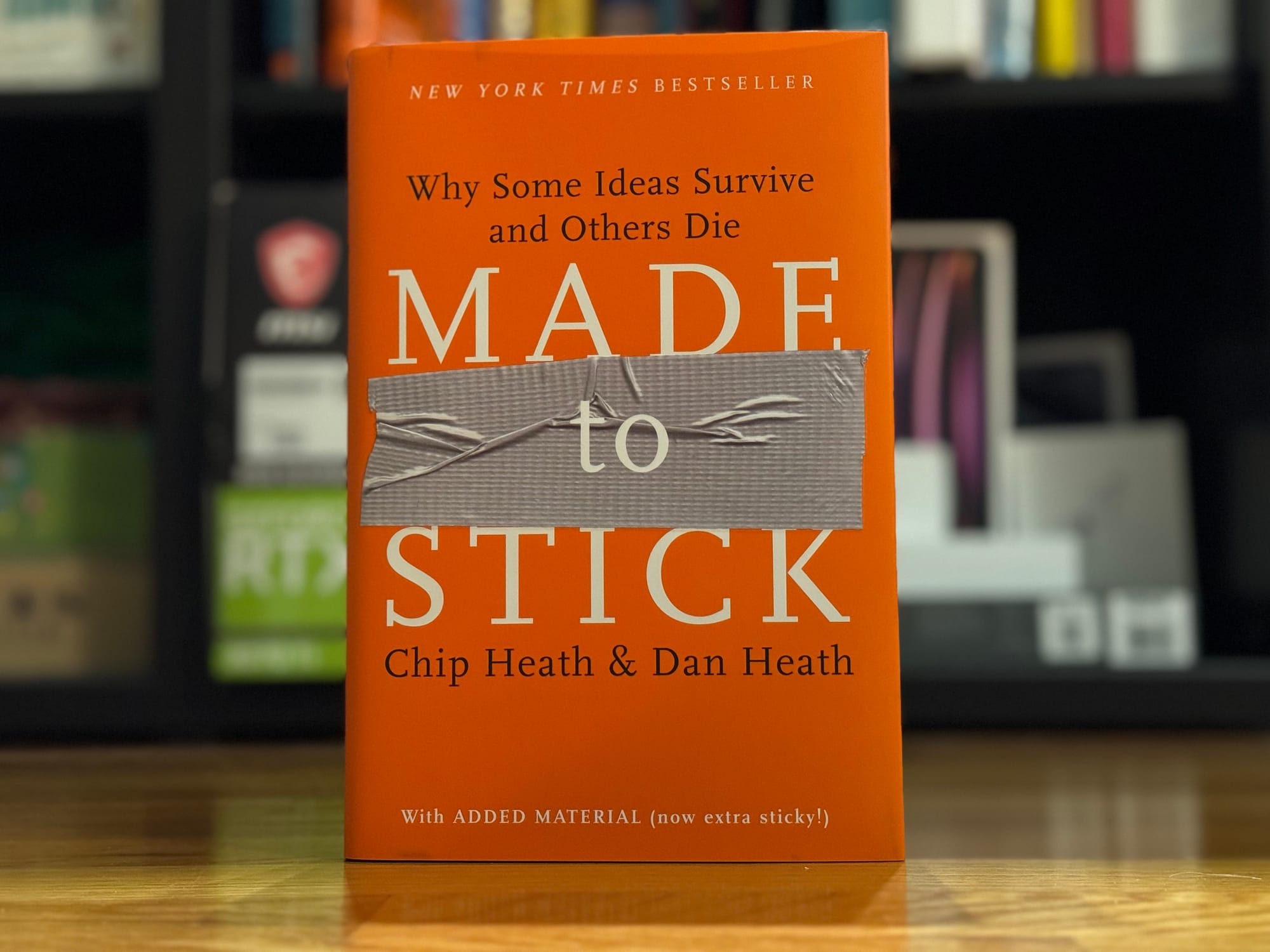Made to Stick
Notes on Chip Heath's Made to Stick. This post is part of a series where I review what I learned from each book I read.

We often hear boring stories, and then forget about them. This book is about how to make them stick, just like proverbs and urban legends.
Side Note: I read this book about 10 months ago, and I've been backlogged on my book summaries. I'm just going to share this draft that I wrote back then.
The Curse of Knowledge
We are cursed with knowledge, and therefore cannot remember what it is like to not know something. This makes it particularly difficult for experts to share with non-experts. Imagine I'm tapping a song on the table, do you think you'd know what it is? To me, the song is obvious, but that's only because I can hear it in my head.
SUCCESs Framework
Simple
- Simple does not mean dumbed down: it's the Commander's Intent, the one most important thing. You can't have 5 most important things. Pick the "core" and go with it
- "Don't bury the lead". Start with your most important thing first, then pyramid down
Unexpected
- Gets their attention
- Create gaps to keep interest in the plot
- Fill gaps at the end for satisfaction
Concrete
- Easier for non-experts to understand, since we are using tangible examples rather than abstract ideas
- More memorable and it's easy to do
Credible
- Anti-authorities, like a smoker, can send a powerful message to make you want to avoid something
- Adding lots of provable details leads to internal credibility; they can just "try it for themselves"
- Humanized stats are not plain numbers. Imagine a pebble is a nuke that can destroy a city, and I throw it in a metal tin. BOOM! Now I pour a bucket full of pebbles into the can, that's why we need to focus on nuclear safety.
Emotional
- People are greedy. Tell them what's in it for them, not how impressively engineered your product is
- One person > many. Sponsoring a single kid in Africa who loves playing soccer and likes piano is easier than donating to "kids in Africa"
- Appeal to their identity, or their ideal identity. A Texan might throw trash on the floor, but when you associate that with the slogan "don't mess with Texas," they might change their mind.
Story
- They inspire people to take action
- They are often concrete, unexpected, and emotional
Other Advice
- Look for sticky ideas, you don't need to be the one to create them (just like the fat subway guy story)
- Anyone can come up with brilliant ideas, not just people like JFK. The examples in the book were predominantly normal people
Conclusion (10/8/24)
I actually tried applying some of these lessons to my college application, perhaps a little too forcefully. My Common App, for example, started out with me rapping at a hackathon—something that is generally unexpected. Maybe my applications were cooked from the start; cs and ce are both highly competitive fields, and I wasn't on par with applicants who won national competitions. Doesn't matter now; I'm enjoying UCSB so far.
